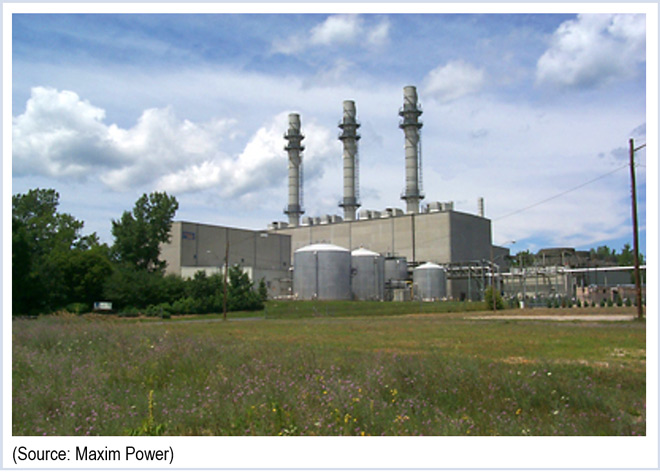By William Opalka
Maxim Power says market manipulation allegations by the Federal Energy Regulatory Commission are an attempt to gain leverage for a settlement of charges from subsequent, unrelated cases.
In a 57-page response to FERC’s Order to Show Cause, the Canadian-based generation owner said allegations that it overcharged ISO-NE in 2010 were revived only after later disputes were unresolved (IN15-4).
FERC issued the order last month, accusing the company of billing the RTO for more expensive oil at its 181-MW plant in Pittsfield, Mass., while actually burning cheaper natural gas. The order, on which Commissioner Tony Clark dissented, seeks a $5 million fine. (See FERC Seeks $5M from Maxim Power; Clark Dissents.)
The company said it offered its Pittsfield plant into the day-ahead market on oil due to pipeline restrictions that indicated it would not be able to obtain enough gas if ISO-NE ordered it to run for 24 hours.
When asked by ISO-NE’s Internal Market Monitor, Maxim said it later acknowledged having burned gas. It said the IMM recovered $3 million over the incident but declined to forward the case to FERC for investigation though it was “certainly cognizant of its Tariff obligation to refer manipulative conduct to [Office of Enforcement] staff.”
“This was no fraud, but … a simple hedge against the possible financial exposure associated with a receipt of a day-ahead award,” Maxim said.
In 2013, however, Maxim said FERC Enforcement staff began an unrelated investigation. “In what certainly looks like an effort to gain leverage in that investigation, OE staff decided to resurrect the 2010 fuel-burn issue,” the company wrote. “Then, in late 2014, when Maxim declined to enter into a tolling agreement, OE staff decided to pursue the 2010 issue separately and on a fast track.”
These are apparent references to allegations contained in the Office of Enforcement’s Notice of Alleged Violations issued in November, which accused Maxim of collecting “millions of dollars of inflated make-whole payments” from ISO-NE between 2012 and 2013 by gaming market mitigation rules for generators needed for reliability. The notice did not elaborate on how this was allegedly done.
The November notice also alleged that Maxim collected inflated capacity payments between 2010 and 2013 by using “extraordinary measures” to boost the output of its three New England plants during testing.
February’s Order to Show Cause did not mention either of these allegations.
Maxim called on the commission to terminate the case, saying that if it proceeds, “OE staff will have to present its case before a neutral federal district court judge based on a novel theory, old incomplete facts and an alleged ‘omission’ that allegedly left the wrong ‘impression’ even though Maxim had no duty to disclose what was allegedly omitted and did not hesitate to provide such information when asked! And it will have to explain why the mitigation imposed over four years ago was insufficient.”
In addition to the Pittsfield plant, Maxim operates two other plants in ISO-NE: CDECCA, a 62-MW cogeneration plant in Hartford, Conn., and Pawtucket Power, a 63.5-MW cogeneration plant in Pawtucket, R.I.



